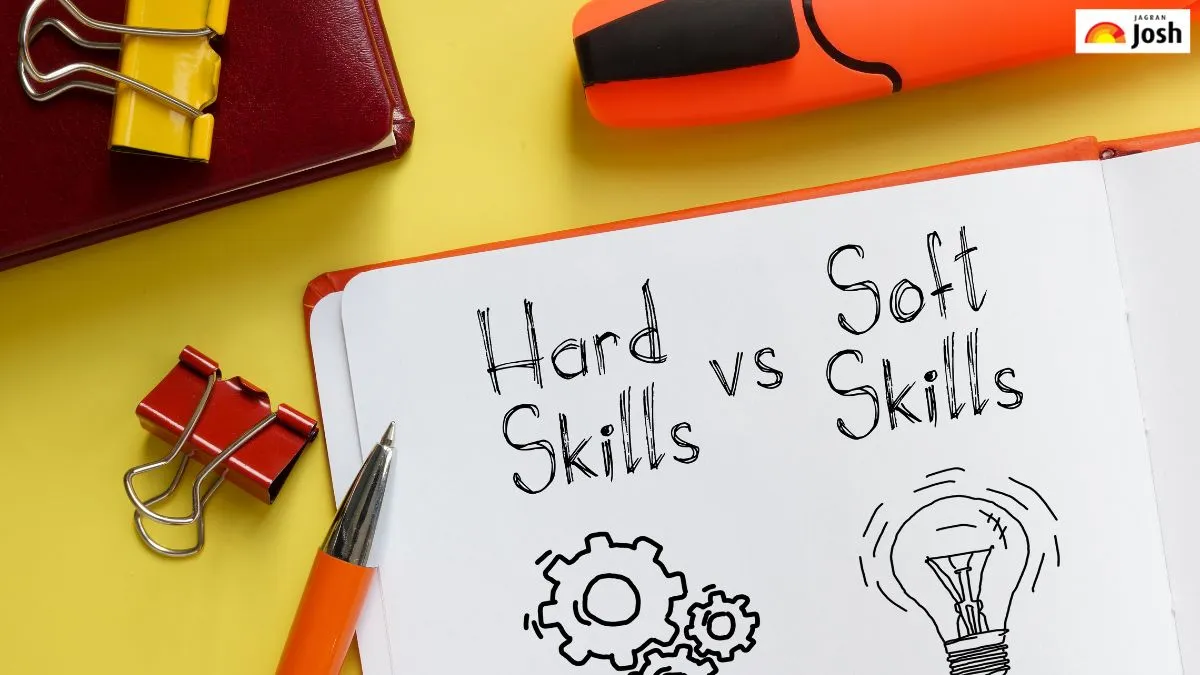Soft Skills Vs Hard Skills:- In today’s competitive job market, technical skills and knowledge alone are no longer sufficient for success in career growth. Hiring managers are now looking for those individuals who possess a combination of technical capabilities and interpersonal skills.
Soft skills present how you communicate, adapt, and solve complex problems, and show leadership skills, whereas hard skills showcase an individual's ability to accomplish the job. Understanding the difference between soft skills and hard skills and how to balance them is the key to long-term job success.
| What are Hard Skills?
What are Soft Skills?
|
Why are Hard Skills and Soft Skills important?
Before applying for any position at any renowned organisation, an individual must understand the importance of having both soft skills and hard skills listed in their resume. Where Hard skills assist an individual to get a job, the soft skills help the individual grow in that particular field.The table below will try to briefly explain the importance of having soft skills and hard skills:-
Also, check:-
-
Which City is Home to the Maximum Number of Central Universities?
-
Which City is Known as the “Educational Hub of India” and Why?
What are the Key Differences between Hard skills and Soft skills?
The key difference between soft skills and hard skills lies in their very nature, learning, assessment and their value at the workplace. Where hard skills are technical and quantitative skills that are associated with certain work, soft skills are personal characteristics and interpersonal abilities. Below is a table to explain the differences between soft skills and hard skills in a simpler way:-
| Characteristics | Soft Skills | Hard Skills |
| Definition | These are interpersonal and behavioural skills | These are job-specific and technical skills |
| Career Impact | These skills help you grow within a specific job role and also offer career growth. | These skills help you secure a particular job role that an individual has applied to. |
| Learning sources | These skills are acquired through practice, experience, and interactions | These skills are required either through certifications, training, schools or colleges. |
| Transferability | These skills are easily adaptable to every job role, industry and personal growth. | These skills are usually job or industry-specific (For example, coding in Python is limited to certain technical professions). |
| Measurability | These skills are harder to assess via a test. These skills are observed and are offered feedback. | These skills are easy to measure, test, and analyse |
| Examples | Leadership, teamwork, emotional intelligence, adaptability, and flexibility | Coding, design, typing, accounting, etc. |
Also, check:-
-
Oldest Colleges in Delhi: Check Courses Offered, History and Other Details
-
Free Ethical Hacking Courses in India: Top Platforms Offering Ethical Hacking Program for Free
-
QS Global MBA Rankings 2025: Check the list of Top Indian B-schools
-
Do You Really Know Your Hindu College? Only a True Hindu College Student Can Have a Perfect Score
-
Do You Really Know Your University BHU? Only a True BHU Student can have a Perfect Score
To stay updated on current trends, join the Jagran Josh Telegram community!
https://t.me/jagranjoshofficial
